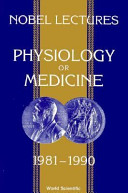The Immune System
An immune system of enormous complexity is present in all vertebrate animals. When we place a population of lymphocytes from such an animal in appropriate tissue culture fluid, and when we add an antigen, the lymphocytes will produce specific antibody molecules, in the absense of any nerve cells. I find it astonishing that the immune system embodies a degree of complexity which suggests some more or less superficial though striking analogies with human language, and that this cognitive system has evolved and functions without assistance of the brain.
Notes:
Enormously complex and acts independently of the brain.
Folksonomies: immune system physiology
Taxonomies:
/health and fitness/disease (0.352766)
/health and fitness/disease/chronic fatigue syndrome (0.264952)
/health and fitness/disease/cancer/brain tumor (0.240854)
Keywords:
Immune System Enormously (0.986234 (negative:-0.373075)), specific antibody molecules (0.973797 (neutral:0.000000)), appropriate tissue culture (0.942674 (positive:0.221434)), enormous complexity (0.711623 (negative:-0.240368)), vertebrate animals (0.568064 (negative:-0.240368)), nerve cells (0.550647 (negative:-0.495168)), human language (0.459249 (positive:0.474525)), lymphocytes (0.459185 (positive:0.221434))
Entities:
immune system:FieldTerminology (0.932599 (negative:-0.306721))
Concepts:
Immune system (0.974198): dbpedia | freebase | opencyc
Antibody (0.933376): dbpedia | freebase
Humoral immunity (0.660108): dbpedia | freebase | opencyc
Bacteria (0.651544): dbpedia | freebase | opencyc
Immunology (0.614586): dbpedia | freebase | opencyc
Organism (0.580662): dbpedia | freebase
Antigen (0.571608): dbpedia | freebase | opencyc
Nervous system (0.558383): dbpedia | freebase | opencyc





